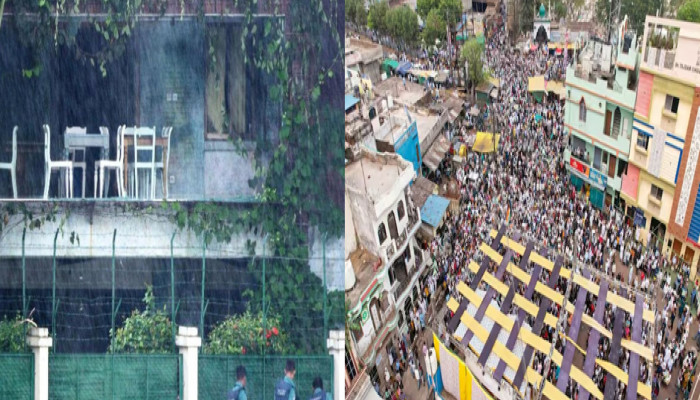Banned Bangladeshi outfit JMB suspected behind Waqf unrest: Indian intel warns
- In Reports
- 01:55 PM, Apr 15, 2025
- Myind Staff
Indian intelligence has not dismissed the possibility of foreign involvement in the communal violence that broke out during protests against the Waqf (Amendment) Act in parts of Murshidabad and now South 24 Parganas in West Bengal.
As per intelligence sources, a group called Jamaat-ul-Mujahideen Bangladesh (JMB) might have played a role by supplying weapons, giving training, and spreading propaganda through routes along the Bangladesh border and the Sundarbans area. But what exactly is JMB? Sources said that JMB, a banned militant group based in Bangladesh, works together with groups like Lashkar-e-Taiba (LeT), Harkat-ul-Jihad-al-Islami (HuJI), and even ISIS-linked groups for training and support. They also said that the 2014 Burdwan blast showed connections to LeT, and the explosives used were smuggled in from a neighbouring country. They added that the JMB uses communal tensions and "anti-Hindu" chants to further polarise people by framing its ideology as a "defence of Islam." They said that its hybrid methodology, which combines offline community exploitation with internet radicalisation, posed a serious risk to regional security.
According to intelligence sources, the JMB uses both online and offline methods to spread radical ideas. It targets tech-savvy young people using messaging apps like Telegram and WhatsApp, where it shares encrypted messages and content inspired by ISIS that promotes violence. The group takes advantage of online spaces known as filter bubbles and echo chambers—places where algorithms keep showing users more of the same kind of extreme content they’ve already interacted with. This way, people who feel isolated or disconnected from society are more easily influenced and recruited online. Research shows that individuals who are radicalised on the internet usually don’t have support networks in real life but are heavily affected by the extreme content they see online.
The JMB's ground operations focus on taking advantage of local institutions and the economic challenges in certain areas. They have infiltrated madrassas and Muslim groups, especially in border districts like Murshidabad and Dhubri, where unregulated madrassas act as fronts for spreading their ideology. Radical clerics promote the JMB’s Salafi beliefs, presenting violence as a form of jihad to enforce sharia law. In impoverished areas, unemployed youth are drawn in with promises of money or a sense of purpose. For instance, in Dhubri, Assam, JMB operatives used fake currency and weapons to recruit new members.







Comments